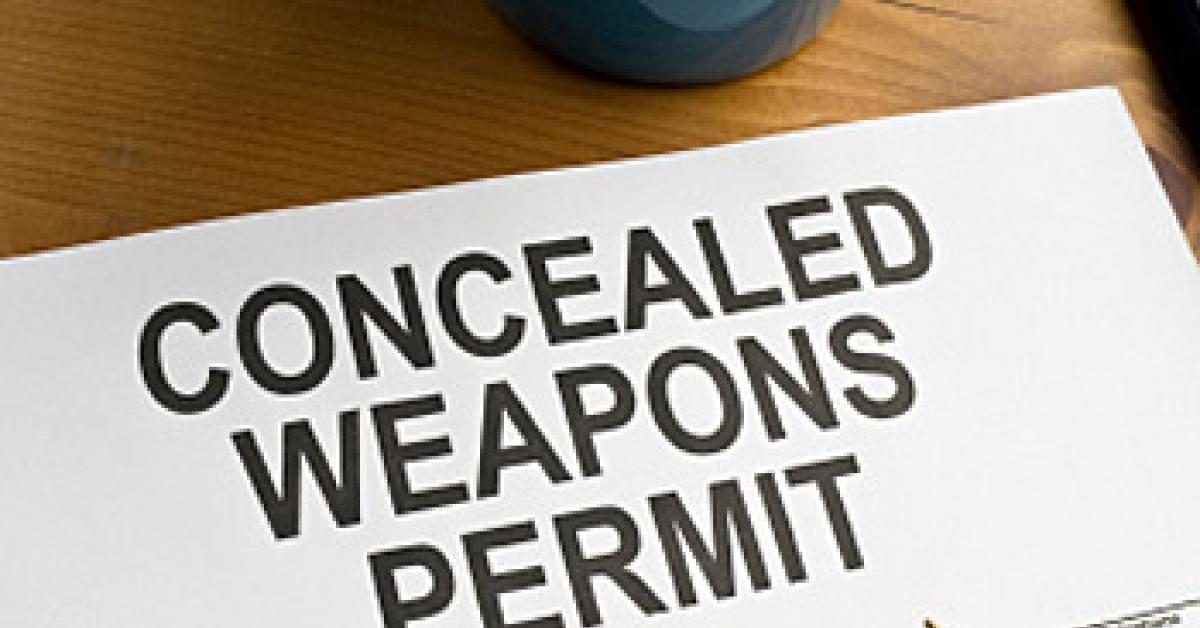DOLTON, Ill. — Property rights and gun rights are in an intensifying conflict over whether employers can prohibit employees from having guns on company property, according to a recent National Federation of Independent Business (NFIB) magazine article. The conundrum is what business owners should do, regardless of which side of the fence they sit upon concerning firearms.
Having a workplace violence policy can protect employers against legal action. You and your business must have written proof that you’ve taken steps to keep employees safe. I’m not a legal expert but I do watch out for firearms legislation that may affect me now or in the future; I do not want my firearms banned or confiscated because of some technical infraction.
Forty-nine states have “conceal carry” laws containing specifics with which residents need to comply. My home state of Illinois does not have such a law yet. The Supreme Court recently weighed in favor of firearm ownership in the home. The cities of Chicago and Washington are scrambling to counter the determination with additional costly hoops a citizen must jump through to own a weapon for self-defense. I have Utah and Florida permits that increase my legal status in additional states.
It just makes good business sense to include violence prevention policies in your employee manual. (If you are an NFIB member, you can download a model employee handbook and even enter your specific company data for free.) Our company has on retainer a safety and environmental compliance company that is assisting me to add language regarding firearms.
Following is a sampling from our company policy manual:
Norco Cleaners wants the safety of employees to be of the highest order and the safety of the workplace can only be upheld by the enactment of policies that protect the employee, therefore we are adding the policy to cover weapons in the workplace.
It is the policy of Norco Cleaners that no employee will be allowed to come to work with a weapon that could harm another employee. The word “weapon” is defined as a firearm of any kind, a knife longer than 5 inches in length, and a knife that has a quick-release blade of any kind.
John Spomar II and John Spomar III are the judges of what constitutes a weapon. If an individual has a legal state or reciprocal out of state permit to have or carry a concealed firearm, they MUST declare this to John Spomar II or John Spomar III to determine if that firearm will be allowed in the workplace.
In the event an employee has a weapon in their automobile or transportation, it will be deemed to be “at work” unless the weapon is declared to John Spomar II for determination about the safety of the situation. These will be determined on a case-by-case basis.
In the event an employee brings or is found to have a weapon on his or her person at work, they will be dismissed from work duties and terminated.
FIRST-HAND EXPERIENCE. About seven years ago, a life-threatening situation occurred in my business. It was about 10:30 on a Saturday morning—my 60th birthday, as it turned out—when two masked individuals entered. One held the back counter area at bay while the other rounded the rest of us up and held us on the floor. He made us hand over our money and jewelry, etc., while holding us at gunpoint. I was in the production area and was shocked that someone had gotten that far into the plant.
Fortunately, one of our long-time employees thought one of the individuals was a former employee and touched his firearm. She noticed the “.45 automatic” was only a pellet gun. When she announced that he had a plastic gun, we all jumped up. It startled the two perpetrators and they ran out the door.
A volunteer fireman saw one of the individuals running across the four-lane road. He called police, and the suspects were apprehended. We went to the police station the next day and identified them in a lineup. Later, we found out they were juveniles and had been released into the custody of their parents. No trial, no money returned.
From that day forward, I made sure I always had my mobile phone with me. I brought my dog to work for a while but worried more about his safety. I obtained my FOID (Firearms Owner Identification, an Illinois requirement) card, legally purchased a handgun, and had it at work. I went through professional weapons training a couple of years ago and obtained my Utah and Florida conceal carry permits. My son and I are just waiting for Illinois to pass a conceal carry law.
I live in a rural area; it could take the county sheriff a long time to respond to a 911 call. I carry all the time while home. My large dogs reduce the threat of violence. I carry for their protection because we often have packs of coyotes run through our property looking for food.
I believe that firearms do not kill, people do. Being legally certified and trained regarding the use of weapons is a social responsibility.
The Second Amendment is a right we must treat with great respect. If your business does not have a violence policy in place, please consider the options.
Have a question or comment? E-mail our editor Dave Davis at [email protected].
